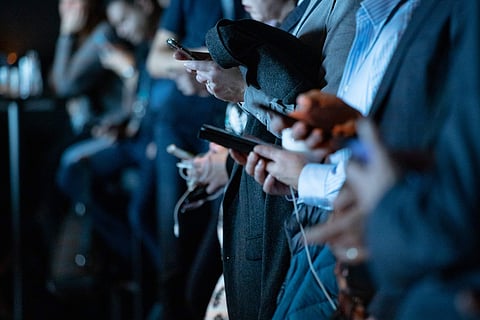
- LIFESTYLE
- FASHION
- FOOD
- ENTERTAINMENT
- EVENTS
- CULTURE
- VIDEOS
- WEB STORIES
- GALLERIES
- GADGETS
- CAR & BIKE
- SOCIETY
- TRAVEL
- NORTH EAST
- INDULGE CONNECT

I am so grateful that social media did not exist, at least not in the way it does now, when I was a teenager or a child. I am also nostalgic for the world wide web (remember that?) of my early adulthood, when it was possible to connect with people meaningfully and not just as your-projection-meets-mine, blogs democratised space for new writers, advertising didn’t clutter the screen, and the phone and the computer were distinct devices.
This is because of the dire turn that social media and the Internet have taken over the last decade. The former became less a place to engage than a hypermarket where capitalism and dirty politics collude. For many of us, social media is the Internet in a sense. When I try to use the platforms less, for instance, I’m offline. I’m not browsing websites, or reading news or commentary directly from the source instead of via a link.
It was recently revealed that Facebook, which owns Instagram, knew from before the pandemic through its own internal research that the latter negatively impacts teenage girls’ mental health, affecting their body image particularly. The studies even showed that up to 13 per cent of users who experienced suicidal thoughts were able to connect them to the platform. The company chose to dismiss its own findings.
Even from the relatively privileged position of requiring social media presence only for work and using it begrudgingly, it has still had myriad repercussions on my mental health. I am not a teenager, but no one who has ever been a teenage girl forgets what it’s like to be one — to be so intensely charged, so full of possibilities, and so unaware of how one is being broken daily in ways that will take decades to resolve. Mega-corporations that demand sacrificial participation in their economies so as to “belong” better offline makes those offline lives that much harder.
Michaela Cole, who won an Emmy this week for writing the brilliant TV series I May Destroy You, said in her acceptance speech: “In a world that entices us to browse the lives of others to help us better determine how we feel about ourselves, and to, in turn, feel the need to be constantly visible — for visibility, these days, seems to somehow equate to success — do not be afraid to disappear. From it, from us, for a while. And see what comes to you in the silence.”
This is not something most of us can do, for many reasons. Cole herself has a social media presence. So this speech is only a reminder, in the same way that the leaked information about the platforms above is. Knowing what we know, can we give ourselves permission to disengage a little more each day?
Speaking for myself, I’m finding it easier to, at this time, because the platforms are just that toxic. I can feel the way Twitter upsets me every time I open it. But then, I compulsively open Instagram or Facebook despite knowing they will bore me. Algorithms and other contrivances show us what they want to. In increments, at least, we can try to see less of it.
Twitter: @ranyamanivannan
(The columnist is a writer and illustrator)